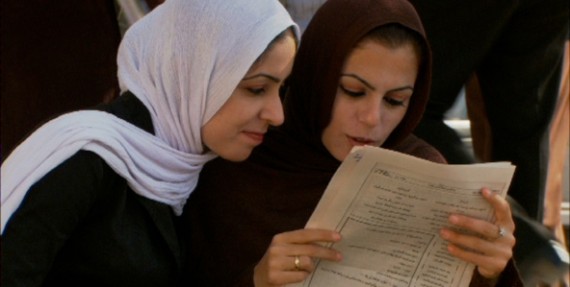![]() Written by Mary Abu Jaber
Written by Mary Abu Jaber
Should the fate of our lives be put in the hands of another human being merely because we are women? The right to feel secure inone’s own body is a basic and fundamental human right that should be employed by all human beings, despite their race, sex, gender, religion, age, and class. Unfortunately, many individuals run the risk of being physically, sexually, emotionally, and psychologically abused merely for being women.
Out of every three women worldwide will be abused during her lifetime with rates reaching seventy percent in some countries. Violence against women is borderless. It knows no boundaries. It does not limit itself to the privileged or the poor, and it can be found anywhere and everywhere, amongst our sisters, mothers, daughters, aunts and friends. Quest for Honor provides its viewers with several real life cases that illustrate the hideous practice of so-called honor killing in Kurdistan. Runak Faraj, Kulthum Murad, Hemin Kaikay, and Lawen Asad investigate, interview, and challenge societal traditions and norms by revealing how a simple claim about women’s sexuality can result in her death.
The claim that women have brought shame upon their families becomes an incentive that legitimizes the cycle of violence against women. Although Quest for Honor focuses on honor crimes that have occurred in Kurdistan, one has to recognize that these cases repeat themselves over and over again in many different countries. Thus, the film should be considered to be a building brick that educates the general public by providing the latter with a visual representation of gendered violence.
Are honor crimes motivated by a patriarchal construction of society? Runak Faraj, editor of Rewan (Dawn), the Women’s Media Centre newspaper in Sulaymani, and her colleague Kulthum Murad try to answer this question by conducting several interviews with people of varying social statuses. “I’ve come for your opinion as an official,” Faraj tells Ali Hama Waso, who is the mayor of Rania. “There is a large number of women killed here.” His answer: “This is the case throughout Kurdistan, and the number hasn’t increased. Besides, men aren’t responsible for women’s suicides, women burning themselves or throwing themselves in the lake. The trouble is not Kurdish men or cultural expectations.”
Although I support Mary Ann Smothers Bruni’s attempt to demonstrate the relation between honor crimes and patriarchy, I believe analyzing honor crimes solely as a patriarchal oppression disregards the legal, economic, and cultural structures present in every society that generate grounds for violence. All in all, Quest for Honor provides enough evidence to aid international media reporting on honor killings and facilitate the advancement of the women’s movement globally by embarrassing and shaming those countries that condone such atrocious practices against women.











